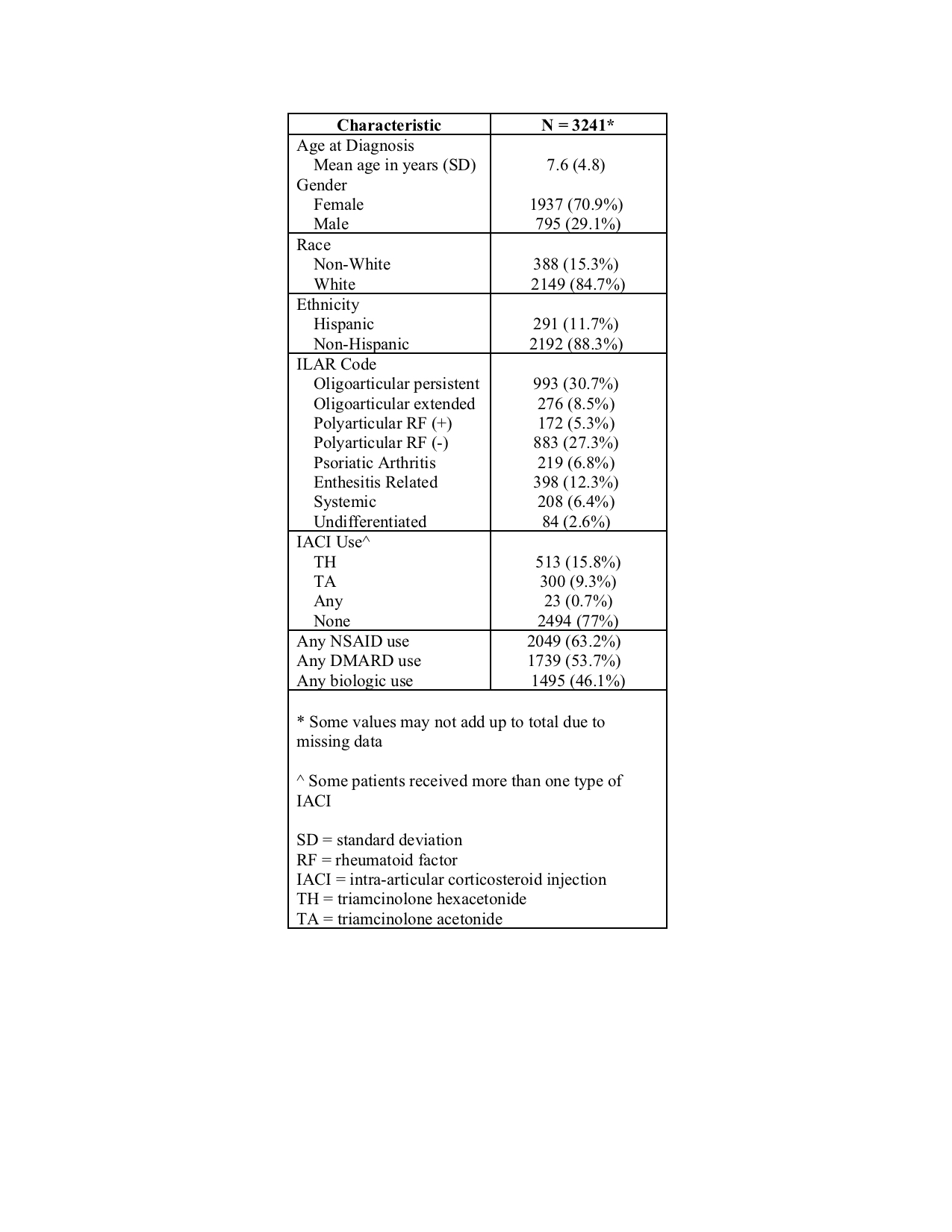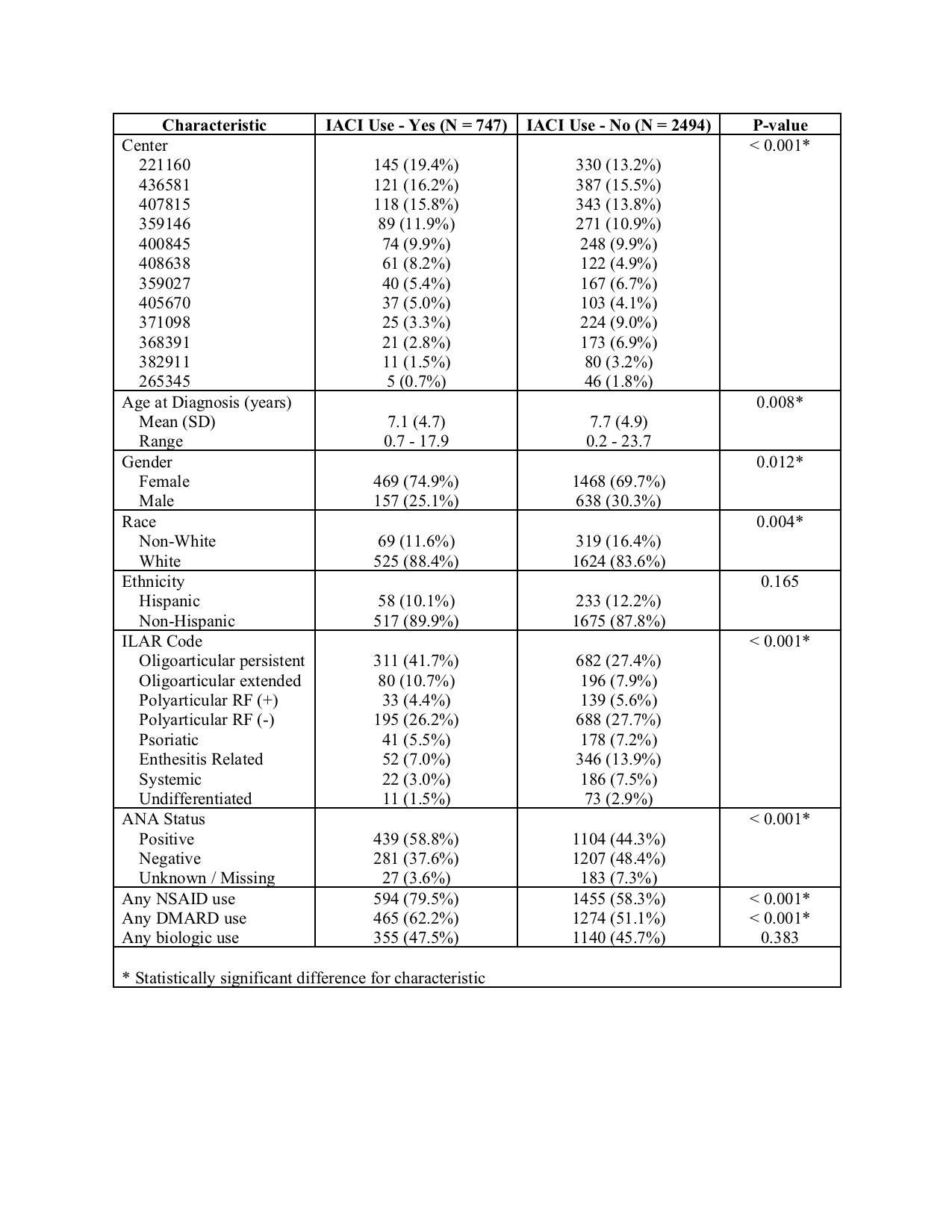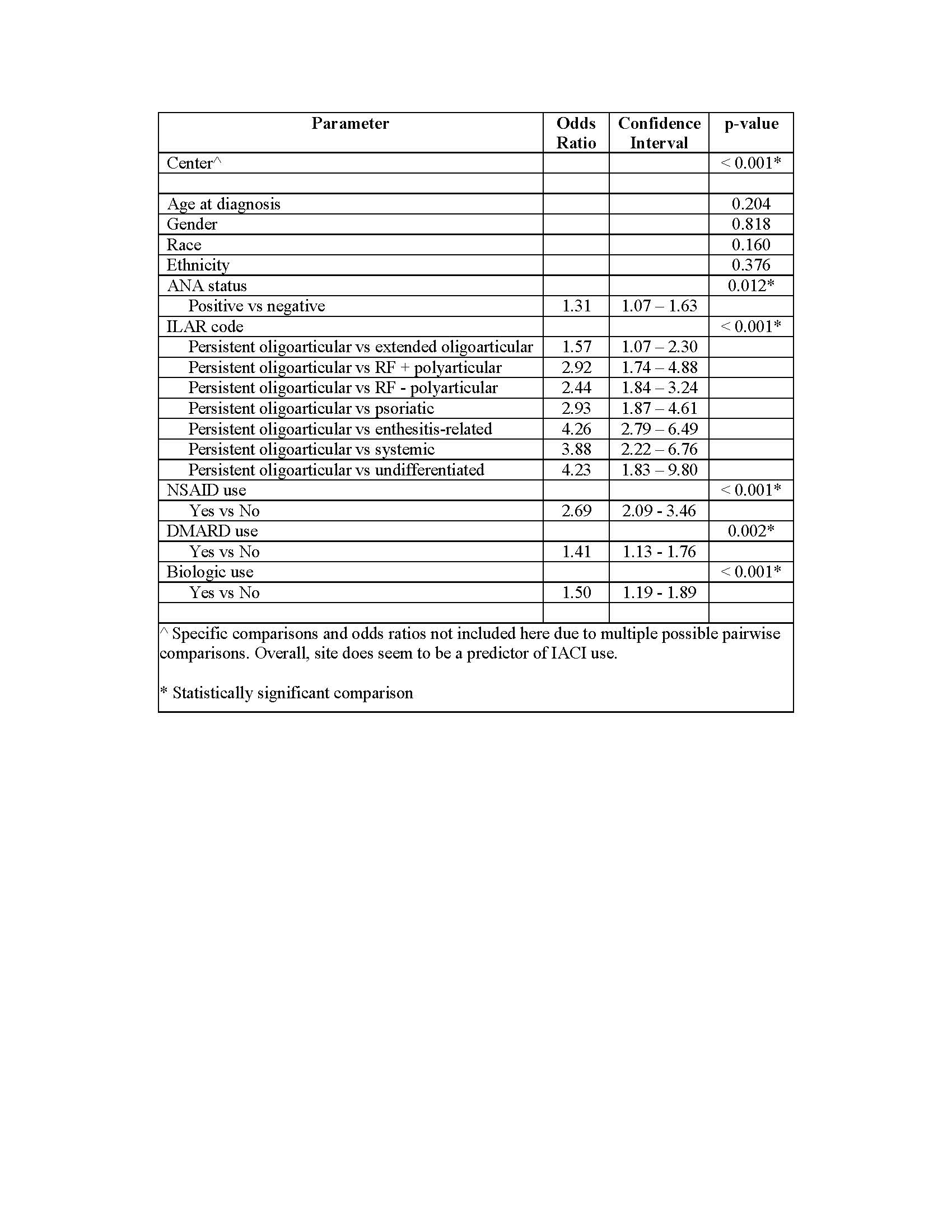Session Information
The 2020 Pediatric Rheumatology Symposium, originally scheduled for April 29 – May 2, was postponed due to COVID-19; therefore, abstracts were not presented as scheduled.
Date: Friday, May 1, 2020
Title: Poster Session 2
Session Type: ACR Abstract Session
Session Time: 5:00PM-6:00PM
Background/Purpose: Juvenile idiopathic arthritis (JIA) is a chronic childhood disease which can result in debilitating arthritis. The 2011 ACR JIA treatment guidelines recommend intra-articular corticosteroid injections (IACIs) as a primary treatment for oligoarticular disease or as adjunct for polyarticular or systemic disease. In all subtypes, other treatments are often utilized, including NSAIDs, DMARDs, and biologics. There is a paucity of data describing how the ACR guidelines are functionally applied and the clinical context in which IACIs versus other treatment options are utilized. The Pediatric Rheumatology Care and Outcomes Improvement Network (PR-COIN) is a multicenter network in North America that uses quality improvement methods to develop and evaluate JIA management strategies, with a goal of improving outcomes for children with JIA. We analyzed data in the PR-COIN registry to examine the prevalence and predictors of IACIs in patients with JIA and to determine how ACR recommendations are applied.
Methods: Analysis of all children with JIA enrolled in the PR-COIN Registry from 2011 inception through July 2015 was completed. Data were collected with IRB approval. Data from 13/14 centers were analyzed as one center did not have IACI data available. Chi-square tests were used to compare categorical measures between those who received at least one IACI and those who did not receive any IACIs. T-tests were used to compare numeric measures between groups. Logistic regression and odds ratios were used investigate demographic or disease features associated with receiving IACIs.
Results: Analysis included 3,241 subjects after 14 patients were excluded due to incorrect/missing data. The majority of registry participants were white (85%), female (71%) and had oligoarticular disease (39%, persistent and extended), similar to previously reported North American rates of JIA (Table 1). Triamcinolone hexacetonide was used most often, and 23% (747/3,241) of patients analyzed received one or more IACI (Table 1). Oligoarticular disease accounted for the majority of IACIs (Table 2), but the overall use for this subtype was still low at 31% (391/1,269). There were statistically significant differences among those who did versus did not receive IACIs by center, age, gender, race, ANA status, NSAID use, and DMARD use (Table 2). Treatment center, ILAR category, ANA positivity, and use of other systemic medications were associated with greater odds of receiving IACIs (Table 3).
Conclusion: The PR-COIN registry seems to be an accurate representation of the North American JIA population, and analysis of registry data can provide meaningful insights on disease treatments. Patients with persistent oligoarticular disease, ANA positivity, and use of other systemic medications were more likely to receive IACIs. Use also varies by treatment center. This analysis demonstrates that the while IACIs are used in the expected clinical settings, the overall prevalence of IACIs is lower than might be expected, knowing that ACR guidelines recommend IACI for all patients with oligoarticular disease. Our findings highlight variability in how treatment recommendations are clinically applied.
To cite this abstract in AMA style:
Balay E, Weiss J, Goh Y, Rubin N, Bullock D. Application of Juvenile Idiopathic Arthritis Treatment Guidelines and Factors Associated with Increased Likelihood of Intra-articular Corticosteroid Administration [abstract]. Arthritis Rheumatol. 2020; 72 (suppl 4). https://acrabstracts.org/abstract/application-of-juvenile-idiopathic-arthritis-treatment-guidelines-and-factors-associated-with-increased-likelihood-of-intra-articular-corticosteroid-administration/. Accessed .« Back to 2020 Pediatric Rheumatology Symposium
ACR Meeting Abstracts - https://acrabstracts.org/abstract/application-of-juvenile-idiopathic-arthritis-treatment-guidelines-and-factors-associated-with-increased-likelihood-of-intra-articular-corticosteroid-administration/



